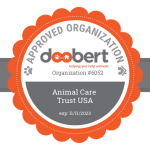OPERATION CATNIP
with MELISSA JENKINS
 Today’s guest was Melissa Jenkins, Program Coordinator of Operation Catnip, located in Alachua County, Gainesville, Florida. Operation Catnip recently celebrated 20 years of service to the cat community. Along with their dedicated students, volunteer veterinarians and community volunteers they have helped to care for more than 56,000 cats since their inception in 1998.
Today’s guest was Melissa Jenkins, Program Coordinator of Operation Catnip, located in Alachua County, Gainesville, Florida. Operation Catnip recently celebrated 20 years of service to the cat community. Along with their dedicated students, volunteer veterinarians and community volunteers they have helped to care for more than 56,000 cats since their inception in 1998.
We learned a lot today about the mission of Operation Catnip. Their life-saving work improves the lives of cats and the communities they live in. They are committed to a number of initiatives including the spaying, neutering and vaccinating of free-roaming (community cats), preventing the birth of kittens, mentoring other programs around the country and training veterinarians to save America’s cats.
What exactly are community cats? Essentially, they are unowned, “free=roaming” cats that are not confined to a yard or a house. They can be well-socialized, friendly and loving. On the other hand, a feral cat speaks more to the behavior or socialization status of a cat as opposed to where it lives. Feral cats are defined as untamed and evasive, generally not interested in a relationship with humans. Sometimes the lines defining these different categories get blurred because some owned cats are allowed to freely roam their neighborhoods. Owned cats can become lost, thus becoming a stray. If they live in the wild for an extended period of time, they may become feral. Sometimes, formerly feral cats can become tamed.
There are programs throughout the United States designed to reduce or manage the populations of community cats. These programs include Trap Neuter Return (or Release, known as TNR), Shelter Neuter Return (SNR) and Return to Field (RTF). Each of these programs has the goal of sterilizing the community cat so it can no longer add to the cat population and then returning it to the location where it was found or trapped. Cats that are returned (as opposed to simply released to an unfamiliar area) to their home communities have a chance to live out their lives as free-roaming cats.
Another novel solution is the concept of Working Cats. A Working Cats is one that can be adopted to a family where its home environment will be a barn, stable, garage, office, retail store or warehouse. These will not be your typical indoor cats that never go outside. Instead, they will likely have an outdoor or indoor/outdoor habitat. Go green! Get a Working Cat to help you control your outdoor rodent or pest populations.
From an estate planning perspective, there are many kind people who support community cats. If something happens to them; either disability or death, what will become of the cats? That’s why organizations like Operation Catnip need your support.
If you want more information about Operation Catnip, visit their website or seek them out on social media on FaceBook. You can make a donation to help support their mission.


